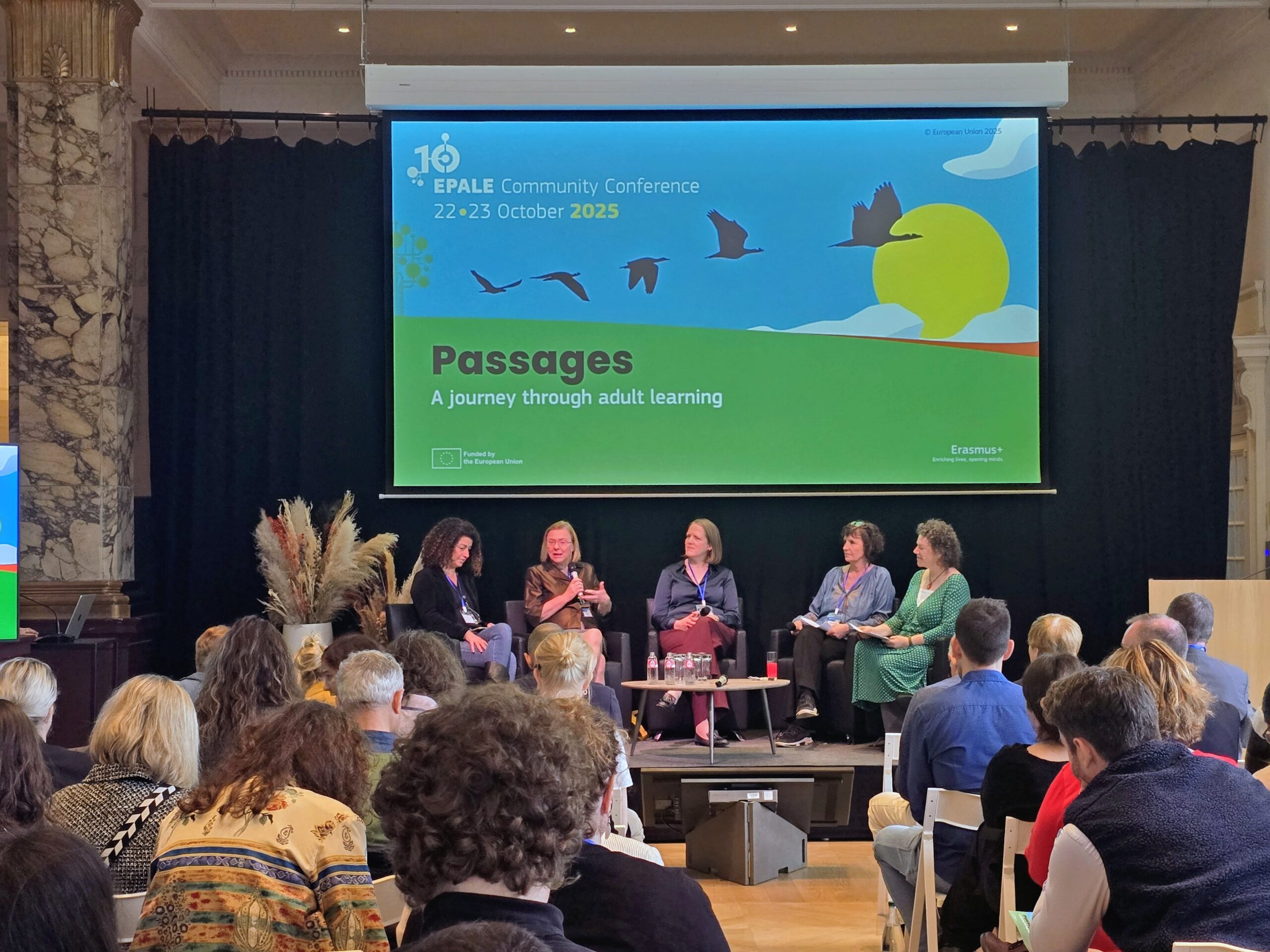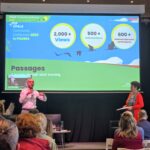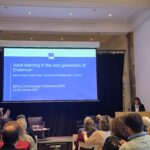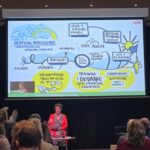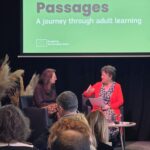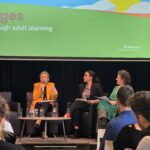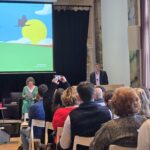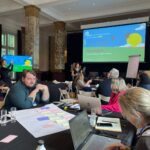This week, our own Ivica Jeđud, Head of Institutional and Inter-organisational Cooperation, had the opportunity to participate in the conference of the Electronic Platform for Adult Learning in Europe (EPALE). EPALE is celebrating its 10th anniversary this year and brings together more than 170,000 individuals from the adult education sector and over 100,000 users who use this e-platform every month. Ivica, together with Jelena Posavec Smilović from the Initiative – Centre for Education, represented Croatia as one of the two most active EPALE platform members from the Republic of Croatia. Our neighbouring Republic of Slovenia was represented by Ana Kaučič, an adult education organiser from Ljudska Univerza Ormož, our long-standing partner in EU projects.
The EPALE Community Conference celebrated past achievements and looked towards the future of adult education, gathering practitioners, policymakers, researchers, and innovators from across Europe. Through a series of activities – from round tables and plenary lectures to interactive workshops – three key themes were addressed, which will define EPALE’s thematic focuses for 2025:
- Artificial intelligence and its transformative impact on educational processes
- Basic skills as the foundation of lifelong learning
- Developing future-oriented skills to prepare learners for the opportunities of tomorrow
Ivica, along with Jelena and Ana, participated in a workshop focused on artificial intelligence (AI), where he presented how POU Čakovec, in its daily work and through our participation in Erasmus+ projects, contributes to the meaningful, ethical, and effective use of this technology in improving the teaching and learning experience and quality. For example, in the HER[AI]TAGE project, where we are a partner organisation, we use AI meaningfully and ethically to preserve the ecological knowledge and stories of our elders and transform them into content that is appealing and interesting to younger generations, ensuring this knowledge is preserved today. AI presents opportunities for new approaches in teaching, content presentation, and the assessment process itself. However, as with any tool, those who use them must know how to master the tool, otherwise, AI tools will master us.
We were extremely pleased to participate in this conference, to meet colleagues from other European countries, to exchange experiences and insights into the very dynamic sector of adult education, and to be inspired and motivated by the wealth of new information, approaches, and experiences we had the opportunity to share with our colleagues.
We extend our thanks once again to the Agency for Vocational Education and Training and Adult Education, which acts as the National Support Service for the EPALE platform in the Republic of Croatia, for the invitation and the opportunity to participate in this event. We look forward to future opportunities for networking, learning, and exchanging experiences!
We encourage everyone to become part of the EPALE family, create a profile, and start using the platform today not only to gain new knowledge, approaches, and information about adult teaching across Europe but also to share examples of best practice from their own institutions.
Start exploring EPALE by visiting https://epale.ec.europa.eu/

